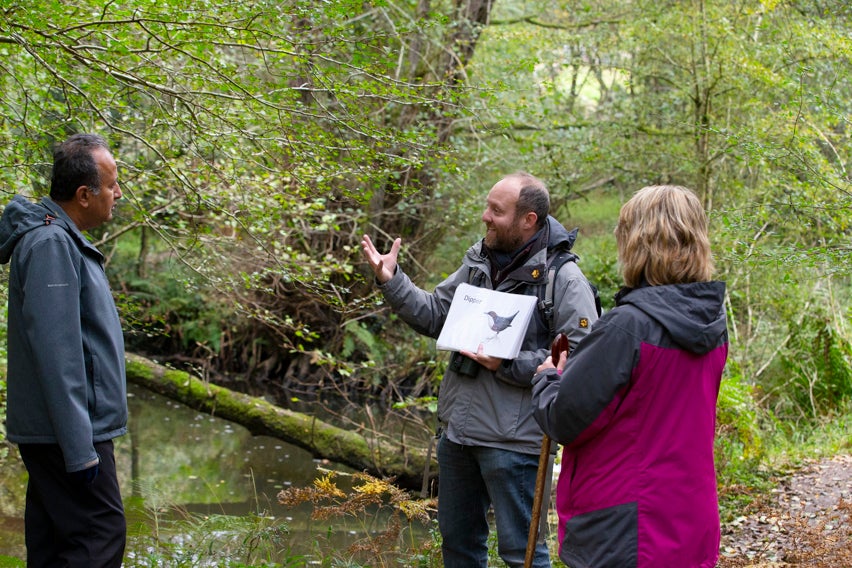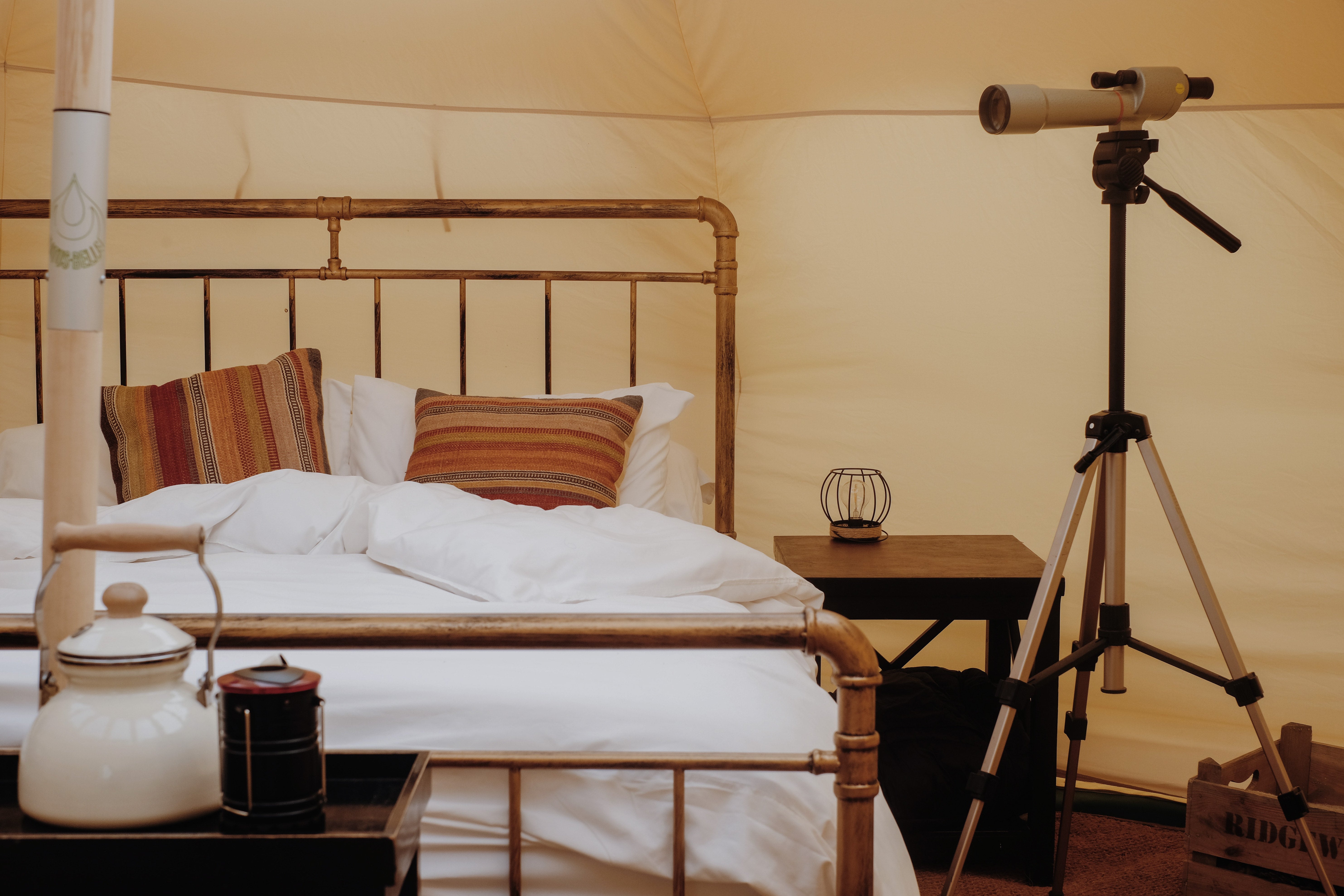How to take a wildlife safari without leaving the UK
Boar, deer, bats – you don’t need to cross continents to track some of the UK’s ‘big five’ in the Forest of Dean, discovers Frankie Adkins

Your support helps us to tell the story
From reproductive rights to climate change to Big Tech, The Independent is on the ground when the story is developing. Whether it's investigating the financials of Elon Musk's pro-Trump PAC or producing our latest documentary, 'The A Word', which shines a light on the American women fighting for reproductive rights, we know how important it is to parse out the facts from the messaging.
At such a critical moment in US history, we need reporters on the ground. Your donation allows us to keep sending journalists to speak to both sides of the story.
The Independent is trusted by Americans across the entire political spectrum. And unlike many other quality news outlets, we choose not to lock Americans out of our reporting and analysis with paywalls. We believe quality journalism should be available to everyone, paid for by those who can afford it.
Your support makes all the difference.We meet our safari guide at dusk, as gauzy light filters through the trees and the air prickles with chill. Ed Drewitt, a naturalist and “wildlife detective”, looks fit for the Serengeti – minus the rumble of a jeep – decked in camouflage colours and binoculars. But this is the Forest of Dean and, rather than rhinos and zebras, we’re here to track the native species that we often take for granted.
This evening we’re hoping to tick off the Forest of Dean’s “big five”, classified, by Drewitt, as wild boar, fallow deer, roe deer, foxes and pine martens (a distinct cat-sized weasel, reintroduced from Scotland several years ago). Luckily, tonight’s conditions are in our favour: a still night without a whisper of wind means it is trickier for animals to catch our scent. We’ve gathered at last light, when animals become more daring, peeping out from nests and hiding holes, feeling less threatened by predators.
Organised by Tudor Farmhouse, a former farm turned boutique hotel that straddles the Forest of Dean and Wye Valley, our wildlife safari has been paired with a “wild sleeping” night, for the full outdoors experience.

It’s no wonder that the Forest of Dean – a 200-square-mile patchwork of trees – is a refuge for wildlife. The fairytale forest is a favourite for film sets, with emerald moss and trees spiralling in lopsided shapes. Grand oaks curve like the keel of a ship; Drewitt tells us they were planted 200 years ago, specifically for the purpose of boat building.
Read more on UK travel:
The forest was designated the UK’s first National Forest Park, protected by law in 1938. Now, it’s prime habitat for woodland species, sheltering perhaps its most famous resident: the elusive wild boar. Initially introduced in the late 1990s under mysterious circumstances – there is still a question mark hanging over whether the first boars were released or escaped – their numbers are now in the hundreds. However, they have earned their place in the forest for their services as “woodland engineers”: scuffing up soil and thereby helping wildflowers and trees to germinate.
When tracking wild boars, we search in particularly muddy patches on paths to find hoof marks amid the footprints. Other telltale signs of disturbance, such as where bore snouts have “routed” in scrub or where ivy has been “browsed” by deer, indicate we’re on the right lines.

“We don’t have the big animals like the aurochs, bears or wolves any longer, so this is the equivalent of a safari but in a very British, woodland way,” says Drewitt. “When I take people out it’s about helping them to stop and listen. People often say they wouldn’t have noticed these animals unless they were pointed out.”
Nearly halfway into our safari, we take a closer look in the binoculars, spotting two jet-black wild boars trundling across a path with babies at their heels. These are followed almost immediately by a posse of chocolate-brown and caramel-coloured fallow deer, strutting elegantly ahead of us.
Drewitt teaches us to cup our ears to mimic satellite dishes, so we can listen out for blue kingfishers, grey wagtails and mandarin ducks. Understanding our auditory faculties might not be as fine-tuned as his, Drewitt pulls out a noise pen to help us identify the chirps of passing birds.
This is the equivalent of a safari but in a very British, woodland way
After an hour or so the forest’s timbre winds down, shifting from lilting bird song to pulsing bush crickets and the low hoots of owls. Our eyes begin to strain and we click on our torches. Drewitt pulls out a bat reader, which translates the high-pitched squeaks of bats into deep croaks, so we can trace their silhouettes darting off the silvery waters of the lake.
After the safari, it’s only a 10-minute journey back to Tudor Farmhouse, where Colin Fell, the hotel’s co-owner, had shown us our base camp the night before. “If you hear a strange barking it’s only the muntjac deer,” he’d said, leading us up a steep hill above the hotel.
Far from a simple canvas shelter, the 5-metre bell tent has retained many of the luxuries of the boutique hotel, furnished with carpets, a big brass-framed double bed and a velvet armchair. A cooler awaited us in the corner, stuffed with goods from the hotel’s award-winning restaurant. Parcels of locally sourced lamb rump, hispi cabbage and potato terrine were ready to be seared on the campfire and washed down with a bottle of shiraz from the Wye Valley.

As with all good camping trips, there were marshmallows to toast, until charred and gooey, and hot chocolate powder to swirl into mugs. The “stargazer” bell tent was equipped with a telescope, books on constellations, solar-powered lamps and plenty of blankets, for an evening staked out under the night sky.
The fairytale forest is a favourite for film sets, with emerald moss and trees spiralling in lopsided shapes
In the morning we were poised, in perfect seclusion, to watch a yolky sun rise above the Wye Valley – and to listen to the chorus of birds we now had a greater appreciation for. There was enough firewood left to cook a full fry-up of locally sourced bacon and sausages, plus fresh eggs from onsite. The “wild sleeping” package is paired with a night in one of the hotel’s 20 rooms, all wooden beams and low ceilings for a more cosy, country house feel. We get the best of both worlds: switching our outdoor toilet tent for a huge freestanding bath and fluffy towels, and our laps for tablecloths in the hotel restaurant.
Ed Drewitt also runs dawn and dusk bird chorus walks, as well as foraging adventures and fossil hunting courses, while ebike and stargazing safaris can be organised via the hotel. Although we only managed to cover a small slice of ground on our Forest of Dean safari, we left confident in our skills to seek out other species waiting in the UK’s many tangles of trees.
Travel essentials
Getting there
Drive or take the train to Lydney, which is around 5 miles from Tudor Farmhouse and the wildlife safari meeting point. There are electric charge points at the hotel for EVs.
Staying there
Tudor Farmhouse offers a wild sleeping package for two nights from £620, based on two people sharing.
More information
Wildlife safaris can be booked directly through Ed Drewitt or through Tudor Farmhouse.
Read more of our best UK hotel reviews
Join our commenting forum
Join thought-provoking conversations, follow other Independent readers and see their replies
Comments